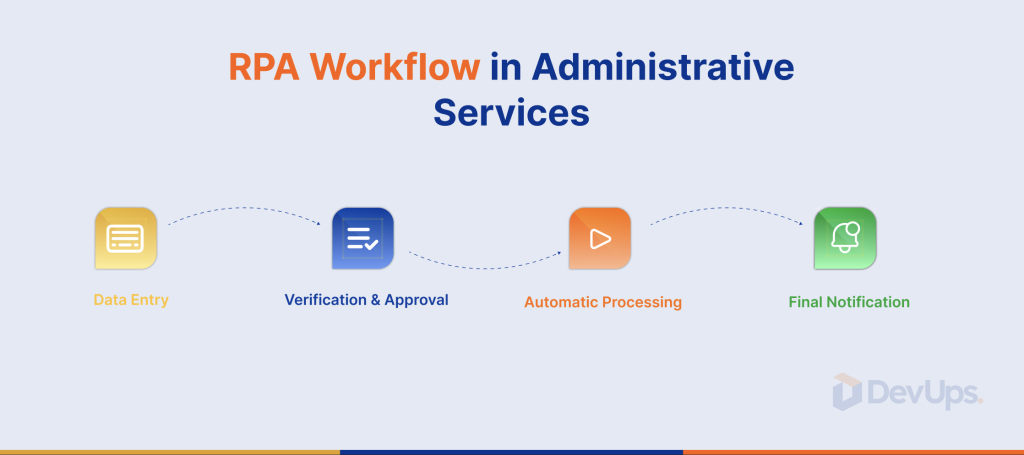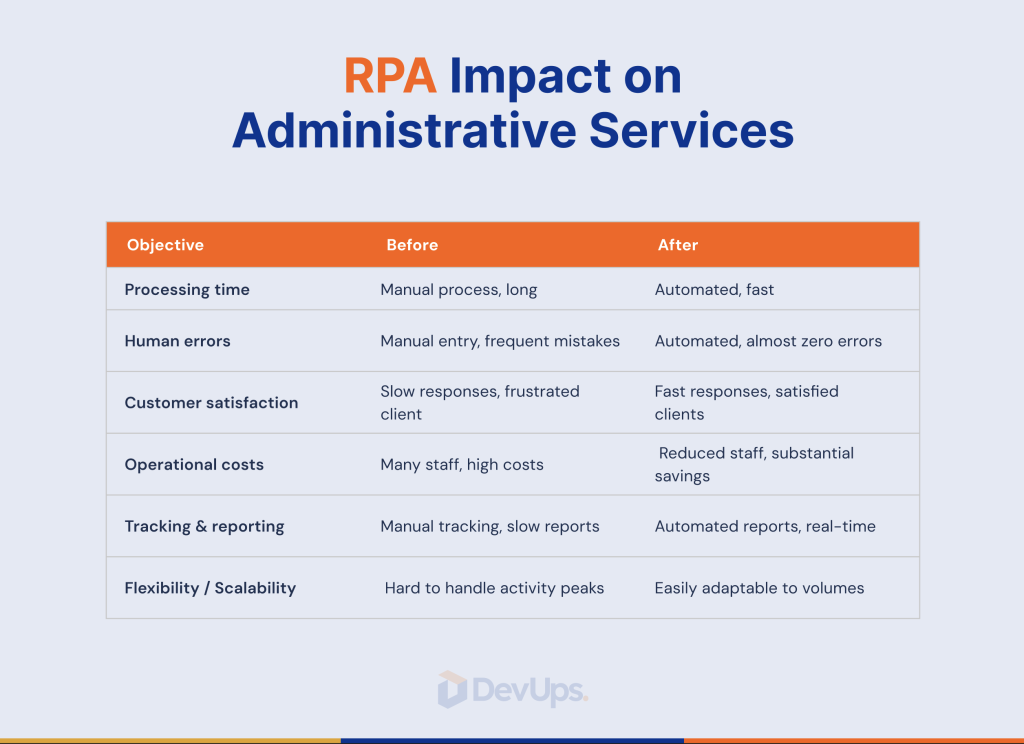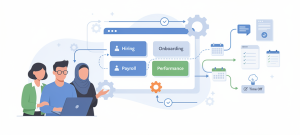The Role of RPA in Transforming Administrative Services

Digitalization is no longer optional for SMEs—it is essential for efficiency and competitiveness. One of the most powerful levers is RPA administrative services, which automates repetitive and time-consuming tasks in administrative workflows.
In this article, we explore why RPA administrative services is revolutionizing back-office operations and how it can be integrated into a broader digital transformation strategy.
Understanding RPA and Its Connection to Administrative Services
Robotic Process Automation (RPA) uses software robots to automatically perform structured, repetitive tasks such as data entry, report generation, and invoice processing.
In administrative services, RPA brings three main benefits:
- Reduced human errors – for example, in accounting entries.
- Faster processing times – for invoices, HR processes, and client requests.
- Time savings – employees can focus on high-value activities like analysis and client relations.
👉 For a broader perspective on digital transformation, check our guide on digital transformation for SMEs.

Why RPA is Transforming Administrative Services
Administrative operations often rely on repetitive, rule-based tasks. RPA transforms them by enabling:
- 24/7 process continuity – robots never get tired.
- Strict compliance with procedures – essential for audits and regulations.
- Significant operational cost reduction.
| Administrative Process | Before RPA | With RPA |
|---|---|---|
| Invoice entry | 4h/day | 20 min/day |
| Leave management | 2h/week | 10 min/week |
| Financial reporting | 2 days/month | 2h/month |
👉 This aligns with the principles of automation with Zapier , a complementary tool for SMEs.

Real-Life Example: Automating Invoice Management
Consider a common scenario: manual invoice processing. Without RPA, employees enter data into the ERP, manually check amounts, and archive documents.
With RPA:
- The robot extracts invoice data from PDF, email, or scan.
- It enters the data into accounting software.
- It validates amounts based on predefined rules.
- It archives the invoice.
Outcome: a task that previously took 15 minutes per invoice is reduced to less than a minute, with zero errors.
Steps to Successfully Implement RPA in Administrative Services
Implementing RPA is more than installing software. A practical roadmap includes:
- Map processes – identify repetitive tasks.
- Prioritize high-ROI processes.
- Draft a clear specification document.
- Pilot test (POC) – start with one process.
- Gradually scale deployment.
- Measure and adjust.
Practical checklist:
- Tasks are repetitive and structured
- Data is digital (minimal human interpretation)
- Clear business rules exist
- RPA tool integrates with existing software
- Team trained to monitor and adjust robots
👉 Need guidance to start? Explore our guide on marketing automation, which complements RPA initiatives.
Common Pitfalls in RPA Adoption
While RPA is powerful, mistakes can reduce effectiveness:
- Choosing the wrong processes – overly complex tasks may create more issues than they solve.
- Neglecting change management – employees must understand that RPA frees time, it does not replace staff.
- Ignoring maintenance – robots must be updated when software changes
👉 Professional guidance ensures smooth adoption. Learn more about our services.
DevUps Approach to RPA Integration for SMEs
At DevUps, we help SMEs integrate RPA into a broader digital strategy. Our methodology includes:
- Pragmatic diagnostics – identify the most suitable processes quickly.
- Modular ecosystem – combine RPA, Zapier, and marketing automation.
- Agile methodology – implement in small steps, delivering fast results.
- Secured ROI – measurable outcomes from early stages.
👉 Discover our complete offer on our services.
Conclusion
RPA administrative services is not a passing trend—it is a core enabler of digital transformation for SMEs. By freeing teams from repetitive tasks, it allows them to focus on strategic activities, client relations, and creating real value.
📩 Ready to explore RPA administrative services for your organization?
👉 Contact us today
Latest Insights and Tips
Start building your digital ecosystem today. Get in touch with our team to discuss your project.







